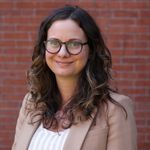By Hannah Connell (IGS Communications Assistant, Spring 2025)
Every day is Earth Day at Boston University’s Institute for Global Sustainability (IGS), but April 22 provides an opportune moment to pause and celebrate the contributions and expertise of our research community. Faculty affiliates across the University lead ambitious, interdisciplinary research efforts that benefit people and the planet.
We asked a few faculty to share collaborations, technologies, and advances that have defined their fields and spurred progress. Here’s what they said:
Climate Resilience in the Mystic River Massachusetts Watershed
Understanding which communities face the greatest climate and environmental health risks is essential to advancing equitable climate resilience. Through a collaborative project with the Mystic River Watershed Association, Jonathan Levy (professor and chair, environmental health, School of Public Health and IGS core faculty) is leading research to identify urban environmental health exposures and pollutants.

“One of our ongoing grants involves trying to build climate resilience in the Mystic River Watershed area of Eastern Massachusetts, by identifying places and populations with elevated exposures to climate stressors and chemicals that contribute to health risks. By working closely with a community partner (the Mystic River Watershed Association), we aim to provide actionable insight that can benefit local communities and help inform climate resilience strategies elsewhere.”
Reducing Air Pollution from Brick Kilns in Bangladesh
Nina Brooks (assistant professor, global health, School of Public Health and IGS affiliated faculty) is working to reduce air pollution from brick kilns in Bangladesh and strengthen the local economy.

“I have been collaborating with icddr,b (the leading public health research organization in Bangladesh), Greentech Knowledge Solutions Ltd. (an energy consultancy based in India), the Bangladesh University of Engineering and Technology, and Stanford University to develop and deliver energy efficiency improvements to traditional brick kilns in Bangladesh. Our interdisciplinary and international team of engineers, economists, epidemiologists, and anthropologists has improved hundreds of brick kilns in Bangladesh, bringing CO2 and PM2.5 emissions reductions and delivering economic wins for kiln owners.”
Discoveries in Microbial Ecology and Biogeoscience
The health of urban trees and the microorganisms that support them are at the heart of Jennifer Bhatnagar’s research (associate professor, biology, College of Arts & Sciences and IGS affiliated faculty). Microbial mutualists are microorganisms that trees rely on for growth and survival. Urbanization can harm these tiny communities — but Bhatnagar’s team is intervening.

“There are two findings that have struck me the most and reshaped the direction of my lab’s research. One is the discovery that urbanization has the most severe, negative effect on microbial mutualists of trees of any global change factor that I’ve studied in my 26 years as a scientist. This is a finding reported by other researchers over the decades, but it was largely ignored until recently. Trees in cities and those living in fragmented forests experiencing edge effects from road construction or pasture creation suffer a loss of fungal mutualists on roots (e.g., ectomycorrhizal fungi, which typically provide trees with nutrients, water, and stress protection) and on leaves (e.g., as epiphytes). In my lab, we are now working to characterize the urban environmental conditions that explain this loss of mutualists, which is paralleled by a rise in plant, animal, and human pathogens found on urban trees. This has potential negative consequences for the lifespan of urban trees, as well as Urban One Health.
The second finding is that these mutualists can be reintroduced to trees that have lost them, through a variety of methods, and this nearly always improves tree growth rates, biomass accumulation, and overall tree health and nutrition. This data comes from reforestation efforts in marginal or degraded land but has not yet been well-tested in urban tree systems. This is an active area of research in my lab, and we hope to discover combinations of mutualistic tree microbes that can withstand the urban environment and help trees thrive there.”
